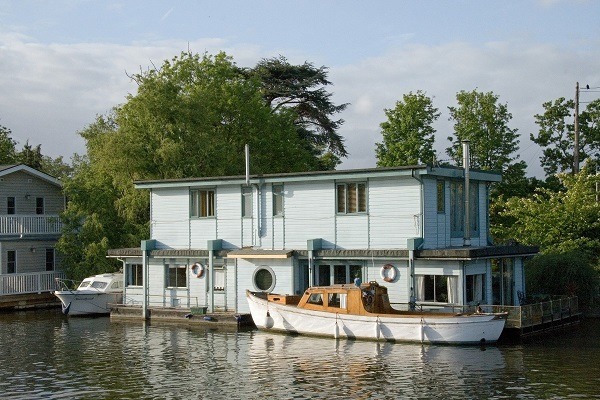Owning a home near the water is a total life goal. Meanwhile, having a home on the water is even better and more exciting. Houseboats can be docked in calm waters, while some can double as a travel boat for sweet cruising by the river. If you’ve always dreamed of living aboard, a houseboat can be a dream house. These kinds of homes come in all sizes, from small boats that can accommodate one to two people to two-story water mansions. Learn about the types and kinds of houseboats here.
But deciding to live on a houseboat without doing preliminary research is a no-no. Before you jump into a new home and a new setting, you must know what to expect. Here are some tips for living on a houseboat:
Know the rules and comply
The first thing you must know when you’re living on a houseboat is how to live in the area you are docking or mooring on. Some marinas allow for liveaboards and provide facilities for the use of the residents.
There are also rules set by the local jurisdictions and the marina owners, so make sure that you are aware of the locally appropriate rules. There is no national or state legislative restriction for living aboard boats, but there are governing bodies who will monitor boating activity and enforce relevant rules and restrictions. It’s imperative for people living on houseboats to be well-informed by the local rules.
Rules like proper wastewater disposal are also important and mandatory. Know if the marina, bay, or club offers pump-out facilities. Composting toilets are highly popular for liveaboards now to make it easier to avoid pollution.
Learn to be self-reliant
When you’re living aboard, you have to be pretty resourceful to manage life on board. Some things can break and malfunction, which may need repair or replacement. But unlike in a house on the land where there’s nothing dangerous that might happen while you wait for a plumber, you may need to figure out a temporary fix so your home won’t sink while you’re waiting for the repairman.
You also have to be independent. There’s no electric supply, water supply, garbage collection, or postal delivery, and it must be arranged by you. Sometimes, wireless internet service providers have greatly limited access. Buying stuff online can be a problem, as home delivery services and shops struggle with the idea of delivering to a location other than a house or office with a clearly visible number.
If you choose to live by the boat, you must be unfazed by the occasional difficulties. Like when you’re halfway through cooking a meal, and you realize you don’t have enough ingredients, you can’t just drive to the nearest store. When you live on a boat, grocery shopping is a much bigger ordeal. But most boating communities resemble the old-fashioned way of living wherein you can drop by your neighboring boat to see if you can borrow a cup of flour or some salt to complete your recipe.
Expect weather to be rocky
When you live in a house on the land, bad weather doesn’t impact your daily life that much. If you’re on a liveaboard life, you are less protected from the whims of the weather. Sometimes, it’s necessary to remain on board to manage the boat during these conditions, while also protecting the boat from the neighboring unattended vessels.
Also, if you work on land and you live in a houseboat, going to work on difficult weather is more than just opening your umbrella as you walk to your car. Sometimes you need a change of clothes in a dry bag.
So, if you’re a little more couch potato and less of a swashbuckler, living in a docked marina or a non-cruising houseboat is more suitable for you.
Be open to isolation and also socialization
When you’re living on board, you are physically isolated compared to living in a home with actual neighbors. It’s a great living situation if you want some peace and quiet. Introverts will love to live in houseboats as they enjoy solitude.
Yet, on the other hand, the boating community has a stronger sense of what a community is than in a suburban setting. As mentioned earlier, the boating community resembles an old fashioned village wherein it’s not uncommon for others to drop by and say hi to the neighbors, or to help each other out and share food. During the bad weather, the people usually prevent unattended boats from causing damage to their boats or to others’.
Get organized
When you decide to live on a boat, you won’t enjoy all the space in the world that comes with typical homes. Everything you choose to bring into your houseboat must do double duty. Choose furniture with hidden storage. Install a hanging rail on the kitchen backsplash. Be willing to give up some of the stuff you don’t use. Free up the kitchen counter and provide storage for your kitchen items. You have to be resourceful when living on the boat.
Know how to keep your houseboat safe
Keeping your houseboat safe is a priority once you decide to live a liveaboard life. It’s the most free-living thing you can do, but it doesn’t mean that it’s completely worry-free. There are many hazards you can face when you’re living on a houseboat, so you have to be aware of the safety measures you have to do. Here are some of the things you should be aware of:
- Keep water out of the boat
Make sure that there is no water pressure in your water system to prevent water from heaving into your houseboat that can cause the boat to sink. A simple leaking of a water hose within your boat can cause severe damage that will cost you much. In most cases, the water that comes from the inside of the boat is what causes the boat to sink, not the water that comes from the outside. If the water supply is frozen, the ice will likely expand and cause a leak. And when the water melts, there’s a chance that the water will start flowing again into the boat.
- Install carbon monoxide detectors
If you have an engine on the boat, you have to make sure that the emissions are blowing safely out of the boat. Carbon monoxide emissions are deadly and can cause havoc to your life on board. To keep your houseboat safe from CO, make sure that you have good ventilation and install a carbon monoxide detector throughout your houseboat so you can be alerted in case of a leak.
- Have a pump close by
Remember, the water must only exist outside the boat. But you can’t always assure that in case of a natural disaster and unforeseen leaks. Having a sump pump is a must-have, so you can keep your home water-free. Don’t put it in the lowest part of the boat because that’s the first place you won’t be able to reach in case of a leak. Store it in an easy-to-reach spot in case of an emergency.
Prepare a boatload of money for maintenance and transport
There are some houseboat owners that ended up regretting their purchase because they didn’t realize how quickly the cost of repairs would add up. Before you make a leap to this kind of living, make sure you will be able to handle necessary maintenance like changing belts and hoses, maintenance fees for a marine mechanic or service department, or oil changes if your houseboat has an engine. And engine maintenance is another expense. Some boating communities have docking fees, plus transport costs for moving a houseboat are very expensive. Consider budgeting around 5 to 10% of the boat’s value for your annual budget for maintenance, insurance, and dockage.
Embrace the closeness
On a boat, there’s more than just a small space. When you decide to live with your family or friends on a houseboat, you will be working more closely with one another. Plus, there’s not enough privacy, as the walls for your rooms will be thinner than typical rooms in a house on the land. If you’re living in a small apartment, you can quickly go outside and head somewhere, but if you’re on a boat, it will be more difficult. Living on a houseboat will deepen your partnership and relationship with the person or people you will be living with.

